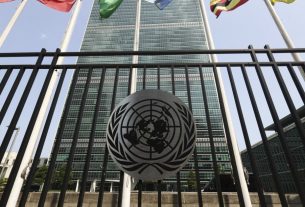Moscow, August 14, 2025 — Russian authorities have announced partial restrictions on voice calls made through WhatsApp and Telegram, citing the need to combat criminal activity and safeguard national security. The move marks the latest escalation in Moscow’s efforts to tighten control over digital communications amid ongoing tensions with Ukraine and broader concerns over foreign tech platforms.
The announcement was made by Russia’s communications watchdog, Roskomnadzor, and reported by state media outlets RIA and TASS.
“In order to combat criminals, measures are being taken to partially restrict calls on these foreign messaging apps,” Roskomnadzor stated.
🔍 Justification and Scope of Restrictions
According to Russian officials, WhatsApp and Telegram have become “the main voice services used for fraud and extortion, and for involving Russian citizens in subversive and terrorist activities.” Authorities claim that Telegram, in particular, has been used by Ukrainian operatives to recruit individuals and coordinate sabotage efforts inside Russia.
The restrictions apply specifically to voice calls, though users have reported disruptions to video calls as well. The digital development ministry clarified that access to these services would be restored once the platforms comply with Russian legislation, including providing law enforcement access to user data for investigations related to fraud and terrorism.
🗣️ Platform Responses
In a statement to AFP, Telegram said it “actively combats misuse of its platform, including calls for sabotage or violence, as well as fraud,” and removes “millions of pieces of harmful content every day”. WhatsApp, owned by Meta Platforms, has previously accused the Russian government of attempting to block its service to suppress secure communication.
🌐 Broader Context: Digital Sovereignty and Control
The move is part of Russia’s broader push for “digital sovereignty”, which includes promoting a state-backed messaging app and reducing reliance on foreign platforms. Critics argue that such measures are aimed at expanding government surveillance and limiting freedom of expression online.
Since the start of its full-scale invasion of Ukraine in 2022, Russia has steadily increased restrictions on internet use, including penalties for accessing or sharing content deemed illicit by authorities.
Excerpts from Menafn



